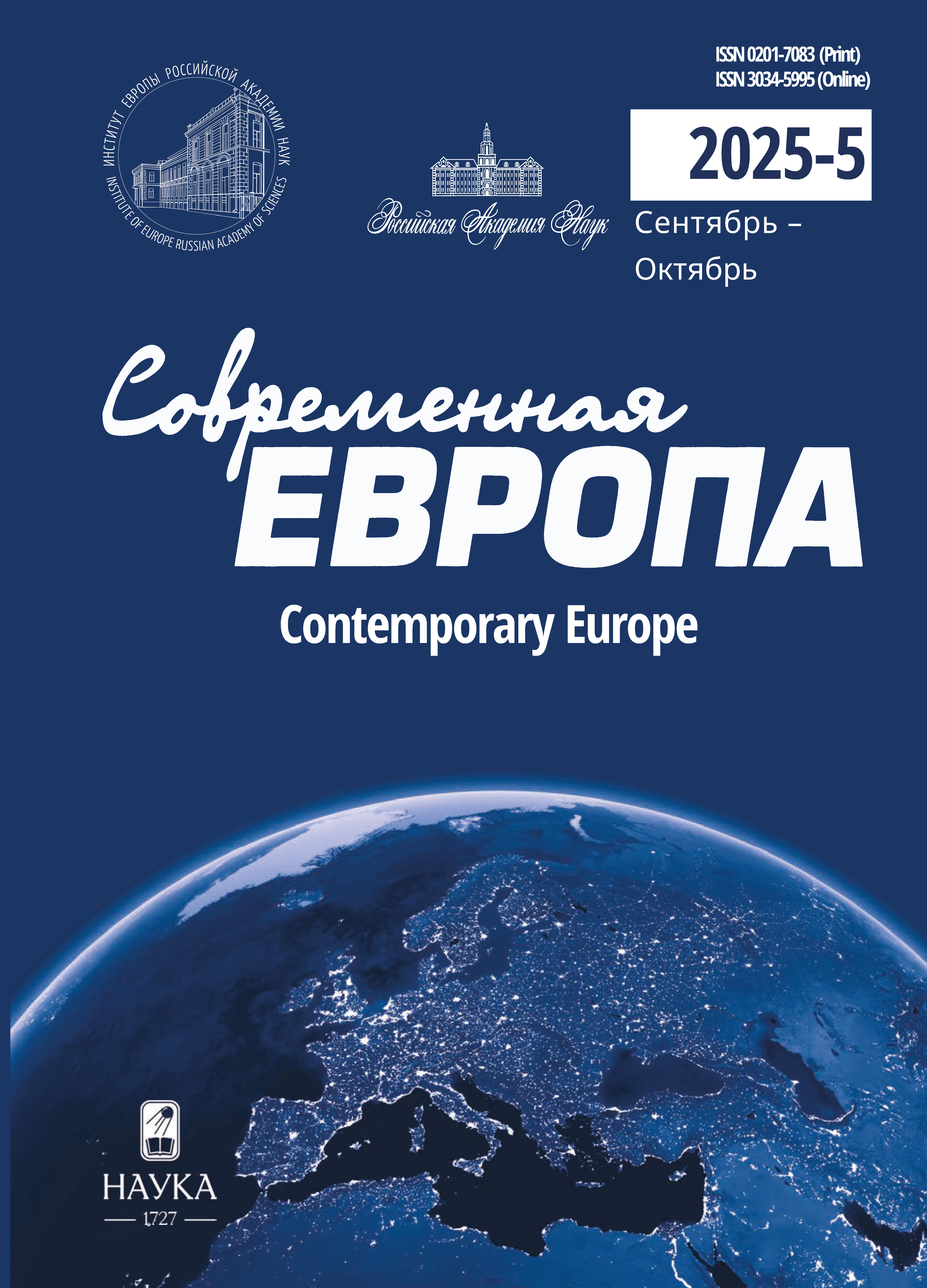The Impact of External Economic Situation on Labor Market of the Faroe Islands in 2000–2025
- Authors: Plyusnin R.M1
-
Affiliations:
- Institute of Europe, Russian Academy of Sciences
- Issue: No 5 (133) (2025)
- Pages: 93-105
- Section: PROBLEMS OF ECONOMY
- URL: https://rjsvd.com/0201-7083/article/view/695689
- DOI: https://doi.org/10.31857/S0201708325050080
- ID: 695689
Cite item
Abstract
Being essentially an island microstate, the Faroe Islands have a number of features of their economic development: high dependence on two industries (fishing and fish farming), which directly employs about 1/3 of the workforce, as well as a limited labor market, where unemployed residents most often travel abroad. The majority of them are young people under the age of 35, for whom there are no vacancies in their homeland. At the same time, like any microstate, the Faroe Islands are very dependent on external economic factors, including in the sphere of domestic employment. The purpose of this article is to examine the changes in the Faroese labor market over the last 25 years under the influence of external factors. The object of research is the labor market of the autonomy, and the subject is the external economic factors affecting it. Among them, were the relations of the Faroe Islands with the EU and Russia. The reorientation of the autonomy in its external relations to RF provided a major boost to the economy of the Faroe Islands in 2014–2023. In addition, an important factor in the economic development of the Faroe Islands has been the stimulation by the authorities of the development of inward tourism in it. Such a policy is generally characteristic of microstates, as well as a high proportion of employment in the civil service.
About the authors
R. M Plyusnin
Institute of Europe, Russian Academy of Sciences
Email: senterix@yandex.ru
Candidate of Sciences (Economics), Scientific Researcher Moscow, Russia
References
- Белухин Н.Е. (2024) Ближе к Вашингтону, чем Брюсселю? Сравнительный анализ парадипломатии Гренландии и Фарерских островов. Анализ и прогноз. Журнал ИМЭМО РАН. № 4. С. 57–72. doi: 10.20542/afij-2024-4-57-72
- Волков А.М. (2021) Внешнеэкономические отношения России со странами Северной Европы в современных условиях. Контуры глобальных трансформаций: политика, экономика, право. № 14(3). С. 176–188. doi: 10.23932/2542-0240-2021-14-3-10
- Воротников В.В., Збирун Д.Н. (2024) Проблема сепаратизма Гренландии и Фарерских островов во внешней политике Королевства Дания. Научно-аналитический вестник Института Европы РАН. № 2(38). С. 97–111. doi: 10.15211/vestnikieran2202497111
- Ефимова Е.Г., Кузнецова Н.П. (2015) Особенности экономического развития ультрамалых островных периферийных регионов Западной Европы (на примере Аландских и Фарерских островов). Проблемы современной экономики. № 1(53). С. 277–284.
- Плюснин Р.М. (2023) Внешняя торговля Фарерских островов в 2014–2022 гг.: разворот на Россию. Научно-аналитический вестник ИЕ РАН. № 1. С. 114–122. doi: 10.15211/vestnikieran12023114122
- Bertram G. (2007) The Welfare State in Microstates and Small States. Commonwealth Secretariat, London, UK. 31 p.
- Bogadóttir R. (2020) Blue Growth and its discontents in the Faroe Islands: An island perspective on Blue (De) Growth, sustainability, and environmental justice. Sustainability Science. No. 15(1). P. 103–115.
- Dosenrode S. (2016) Devolution in the North Atlantic: The Case of the Faroe Islands. Federalism beyond Federations. Ed. by F. Requejo, N. Klaus-Jürgen. Routledge, London, UK. P. 109– 132. DOI: https://doi.org/10.4324/9781315582078
- Grydehøj A. (2011) Making the most of smallness: economic policy in microstates and subnational jurisdictions. Space and Polity. Vol. 15. Issue 3. P. 183–196. DOI: http://dx.doi.org/10.1080/13562576.2011.692578
- Hamilton L.C., Colocousis C.R., Johansen S.T.F. (2004) Migration from Resource Depletion: The Case of the Faroe Islands. Society & Natural Resources. No. 17(5). P. 443–453. DOI: https://doi.org/10.1080/08941920490430232
- Juhás T. (2018) European Union and the Faroe Islands: Possibilities for Closer Trade Relations. Proceedings of the 4th International Conference on European Integration. Ed. by M. Staníčková, L. Melecký, E. Kovářová, K. Dvoroková. VŠB Technical University of Ostrava, Ostrava, Czech Republic. P. 594–603.
- Olavson R. (2024) Small but sturdy: Lessons on robust crisis governance from the Faroe Islands. Small States & Territories. Vol. 7(2). P. 265–286.
- Tarrés J.P. (2017) Be good with your neighbours. Support networks of immigrant entrepreneurs in a microstate. Doctoral thesis. Universitat Autònoma de Barcelona, Barcelona, Spain. 265 p.
Supplementary files











